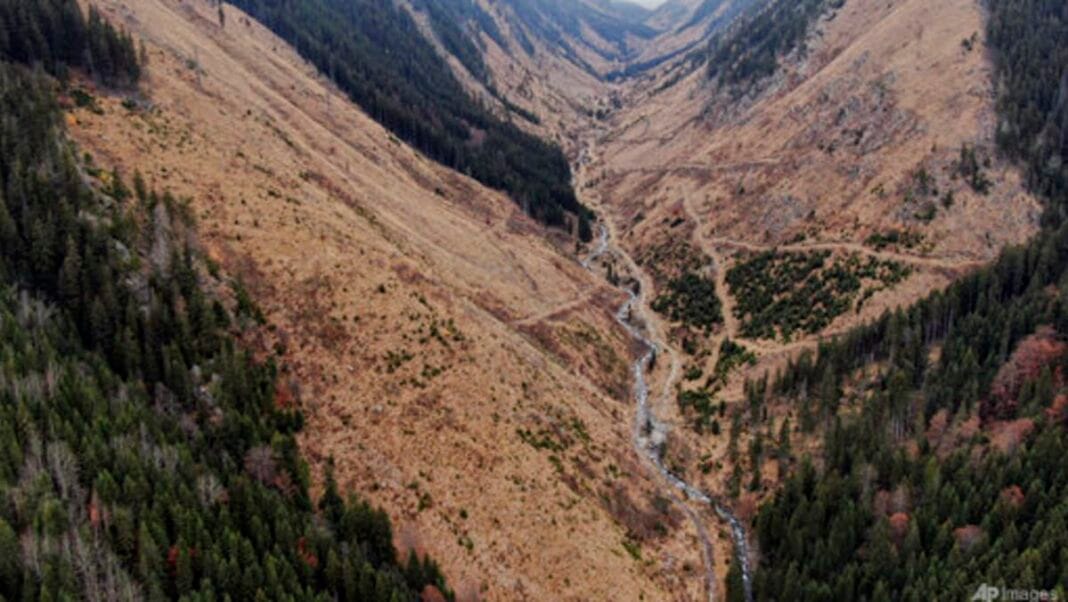EU Legislation on Deforestation: A Comprehensive Review
In a move to combat deforestation and protect nature, the European Union has introduced new legislation that requires firms importing goods to the EU to track their supply chains and prove that the products did not originate from deforested zones. This groundbreaking law aims to hold exporting countries accountable and reduce the environmental impact of global trade.
Firms Responsible for Supply Chain Tracking
According to the new regulations, firms importing goods into the EU will be responsible for tracking their supply chains to ensure that the products are not linked to deforestation. This process will rely on geolocation and satellite data to verify the origins of the goods.
Increased Scrutiny for High-Risk Countries
Countries considered high-risk will face stricter checks, with at least 9% of products sent to the EU subjected to thorough inspections. This proportion will decrease for nations classified as lower-risk, aiming to target regions where deforestation is a significant concern.
Delay in Implementation
Despite the initial proposal by the European Commission, the implementation of the law faced a delay due to objections from exporting countries in Asia, Africa, and the Americas. These nations raised concerns about increased production costs and the lack of clear compliance guidelines.
Creation of “No Risk” Category
Parliament introduced amendments to create a “no risk” category for nations with a negligible impact on deforestation, such as Germany. This category would face minimal scrutiny, highlighting the varying levels of risk among exporting countries.
Divisions Within the EU
The proposed changes to the law have sparked divisions within the EU, with some arguing that the amendments weaken the effectiveness of the legislation. Critics believe that the creation of a no-risk category could incentivize the laundering of commodities through certain countries, undermining the law’s impact.
Outcry from Environmental Groups
Environmental groups have expressed outrage over the delay in implementing the law, accusing lawmakers of adding loopholes that could compromise efforts to protect nature and combat climate change. The EU institutions are currently negotiating the proposed changes to address these concerns.
Conclusion
The EU’s legislation on deforestation represents a significant step towards promoting sustainability in global trade. While the delay and amendments have sparked debate, the ultimate goal of protecting nature and combating climate change remains a priority. The ongoing negotiations will determine the future effectiveness of the law in achieving these crucial objectives.
FAQs
What are the main objectives of the EU legislation on deforestation?
The main objectives of the legislation are to hold firms accountable for tracking their supply chains, reduce the environmental impact of global trade, and combat deforestation.
How will high-risk countries be affected by the new regulations?
High-risk countries will face stricter checks, with a higher proportion of their products subjected to inspections when imported into the EU.
What is the purpose of the “no risk” category?
The “no risk” category aims to exempt nations with a negligible impact on deforestation from stringent requirements, allowing for reduced scrutiny of their products.
Why have environmental groups raised concerns about the proposed changes?
Environmental groups are worried that the amendments could weaken the effectiveness of the legislation and create loopholes that undermine efforts to protect nature and combat climate change.
How are exporting countries reacting to the EU legislation?
Exporting countries in Asia, Africa, and the Americas have raised objections to the rules, citing increased production costs and a lack of clear compliance guidelines.
What impact will the delay in implementation have on the law?
The delay will prolong the process of enforcing the legislation, potentially affecting its effectiveness in addressing deforestation and environmental concerns.
What role do satellite data and geolocation play in tracking supply chains?
Satellite data and geolocation are used to verify the origins of goods and ensure that they did not come from deforested areas, providing crucial information for firms importing products into the EU.
How are different risk categories determined for exporting countries?
Countries are classified into low-risk, standard-risk, and high-risk categories based on their impact on deforestation, with varying levels of scrutiny applied to products from each category.
What is the overall goal of the EU legislation on deforestation?
The legislation aims to promote sustainability, protect nature, and combat climate change by regulating the import of goods into the EU and reducing the environmental impact of global trade.
How are lawmakers addressing the concerns raised by environmental groups?
Lawmakers are currently negotiating the proposed changes to the law to address concerns raised by environmental groups and ensure that the legislation remains effective in achieving its objectives.
Tags:
EU legislation, deforestation, environmental protection, global trade, sustainability

